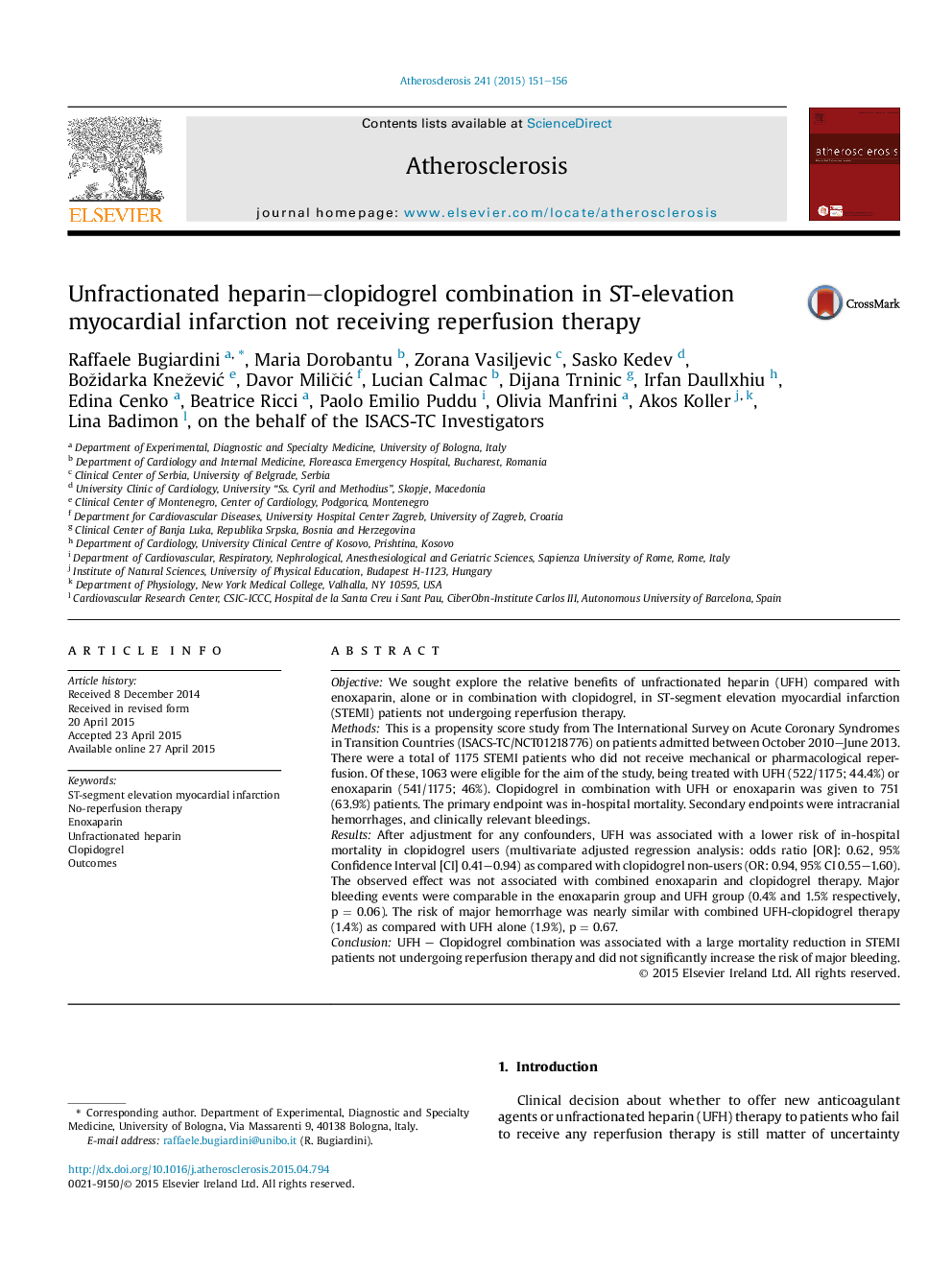| Article ID | Journal | Published Year | Pages | File Type |
|---|---|---|---|---|
| 5944500 | Atherosclerosis | 2015 | 6 Pages |
â¢Many STEMI patients did not receive reperfusion therapy.â¢The exact antithrombotic regimen that may be of benefit in these patients is not yet defined.â¢UFH - clopidogrel combination was associated with a large mortality reduction.â¢Clopidogrel adds to the benefit of UFH but not of enoxaparin.
ObjectiveWe sought explore the relative benefits of unfractionated heparin (UFH) compared with enoxaparin, alone or in combination with clopidogrel, in ST-segment elevation myocardial infarction (STEMI) patients not undergoing reperfusion therapy.MethodsThis is a propensity score study from The International Survey on Acute Coronary Syndromes in Transition Countries (ISACS-TC/NCT01218776) on patients admitted between October 2010-June 2013. There were a total of 1175 STEMI patients who did not receive mechanical or pharmacological reperfusion. Of these, 1063 were eligible for the aim of the study, being treated with UFH (522/1175; 44.4%) or enoxaparin (541/1175; 46%). Clopidogrel in combination with UFH or enoxaparin was given to 751 (63.9%) patients. The primary endpoint was in-hospital mortality. Secondary endpoints were intracranial hemorrhages, and clinically relevant bleedings.ResultsAfter adjustment for any confounders, UFH was associated with a lower risk of in-hospital mortality in clopidogrel users (multivariate adjusted regression analysis: odds ratio [OR]: 0.62, 95% Confidence Interval [CI] 0.41-0.94) as compared with clopidogrel non-users (OR: 0.94, 95% CI 0.55-1.60). The observed effect was not associated with combined enoxaparin and clopidogrel therapy. Major bleeding events were comparable in the enoxaparin group and UFH group (0.4% and 1.5% respectively, p = 0.06). The risk of major hemorrhage was nearly similar with combined UFH-clopidogrel therapy (1.4%) as compared with UFH alone (1.9%), p = 0.67.ConclusionUFH - Clopidogrel combination was associated with a large mortality reduction in STEMI patients not undergoing reperfusion therapy and did not significantly increase the risk of major bleeding.
